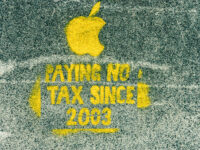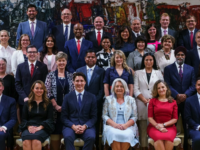Last week, the CRTC issued the first two of what are likely to be at least a dozen decisions involving the Online Streaming Act. Those decisions are already sparking controversy, but as the Commission focuses on Bill C-11 and perhaps soon Bill C-18, there is mounting concern that its other […]
Search Results for "c-18" : 197
Why the Government is Quietly Undermining Competition Bureau Independence in Bill C-56
The government unveiled Bill C-56 yesterday, legislation it touts as supporting the building of more rental homes (through tax measures) and stabilizing grocery prices (through Competition Act reforms). While the proposed Competition Act changes include increased investigative and merger blocking powers for the Competition Bureau as well as the long overdue elimination of the efficiencies defence, the bill also includes provisions that undermine Competition Bureau independence. The government is not promoting those changes – there is no reference to it in the press release – but bill gives it broad powers to order inquiries into any market or industry and dictate the terms of the inquiry to the Competition Bureau. Those reforms are not subject to any significant limitations and are open to potential abuse.
Federal Court Approves Consent Order Requiring Minister Steven Guilbeault to Unblock Ezra Levant on Twitter
The Federal Court has approved a consent order requiring Environment and Climate Change Minister Steven Guilbeault to unblock Rebel News publisher Ezra Levant on Twitter. The order stems from a 2021 lawsuit filed by Levant which argued that blocking “violated the Applicants’ constitutional rights under section 2(b) of the Canadian Charter of Rights and Freedoms in blocking access to official governmental Twitter accounts, and thereby limiting the Applicants’ ability to, inter alia, access and communicate important information, participate in public debate, and express views on matters of public concern.” The order also includes a $20,000 cost award to Levant. Regardless of your views of either Levant or Guilbeault, the principle that government ministers should not block access to their feeds given the implications for freedom of expression is an important one.
It’s Complicated: Unpacking the Risks Behind Canada’s Digital Services Tax Plan
The Canadian government released a detailed document last week outlining the specifics behind its draft Digital Services Tax Act. No actual legislation has yet been passed, but the government is providing guidance on how the potential law would be interpreted assuming it takes effect next year. The document has sparked criticism from business groups and the U.S. government given that it envisions a retroactive three percent tax that will hit a wide range of businesses. Further, the Canadian plan is facing significant opposition from many OECD countries since it may jeopardize a global agreement that is designed to address the digital services tax issue. While the digital services tax (DST) is typically framed as a tax on big tech, the reality is that the Canadian version extends far beyond just companies such as Google and Facebook, potentially including major Canadian retailers such as Canadian Tire, Loblaws, and others.
My view is that unlike Bills C-11 and C-18, which create cross-industry subsidy models funded by tech companies to support government policy, appropriate taxation models is the far better approach to ensure that companies “pay their fair share”. While a DST may be a good approach (particularly if part of a global system), the Canadian plan to implement the tax retroactively next year creates some significant risks. In fact, our current approach raises the prospect of U.S. tariff retaliation, opposition from many allies at the OECD, and expanded news link blocking in response to Bill C-18.
Same as It Ever Was: Cabinet Overhaul Signals Government Doubling Down on Digital Policy Mess
It should not come as a surprise, but those hoping that the government’s much-anticipated cabinet overhaul might signal a potential course-correction on its digital policy mess will be sorely disappointed. If anything, yesterday’s changes at Canadian Heritage and Justice suggest an acceleration of plans that will include continuing to head toward the Bill C-18 cliff of blocked news links as well as introducing controversial online harms legislation and perhaps even copyright reform. Pascale St-Onge, the new Heritage Minister, was a lobbyist in the culture sector before her election to the House of Commons and is likely to welcome the big tech battle, while removing David Lametti as Justice Minister and replacing him with Arif Virani means online harms loses an important voice for freedom of expression in favour of someone who has expressed impatience with delays in new regulations.










